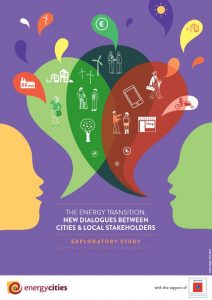
As part of the partnership component of its Climate Plan, Greater Besançon has a number of projects in progress or in the pipeline:
A project with the Praxibat platform for developing the skills of building professionals through the organisation of regular meetings with professionals from the Besançon area;
Two projects with communication students aimed at creating a database of transition companies, obtaining an overview of the obstacles and levers affecting transition and developing a citizen mobilisation strategy with the environmental education platform;
Other community mobilisation projects: 150 families acting for the climate, projects related to agriculture and local food, etc.
Greater Besançon has drawn a number of lessons from its experience about how to engage a dialogue with local stakeholders. With families, the important point is to convey messages in a pleasant way. It is also possible to rely on relay-stakeholders based on the knowledge that mobilising one third of the citizens is enough to trigger a snowball effect. When addressing local businesses, Greater Besançon focuses on economic gains and existing best practices while working on developing a network of interested businesses already promoting energy transition. The “Energy transition meetings”(Rendez-vous de la transition énergétique) are a good example of this.
In the wake of the Stakeholders’ Club and to prolong the emulation generated locally by the national debate on energy transition, Greater Besançon contacted the FACE Business Club, asking them to integrate a sustainable development and energy transition dimension. After approval by the Board of Administrators, a symposium was organised in January 2014 around themes like mobility, thermal retrofitting, the social and inclusive economy, etc. The positive feedback from the President of the FACE Club (ENGIE) led to the organisation of Energy transition meetings (December 2014, March 2015, October 2015), on the model of the morning sessions already organised by ENGIE: around fifty participants from various companies meet for two hours to discuss and review energy transition themes and share best practices; they also receive input from financers like ADEME or the Regional Council.
The Energy transition meetings: key success factors
–Suitable times
–Open discussions covering a wide range of subjects, from economic gains to competitiveness and more technical or behavioural aspects.
–No sanctimonious discourse


